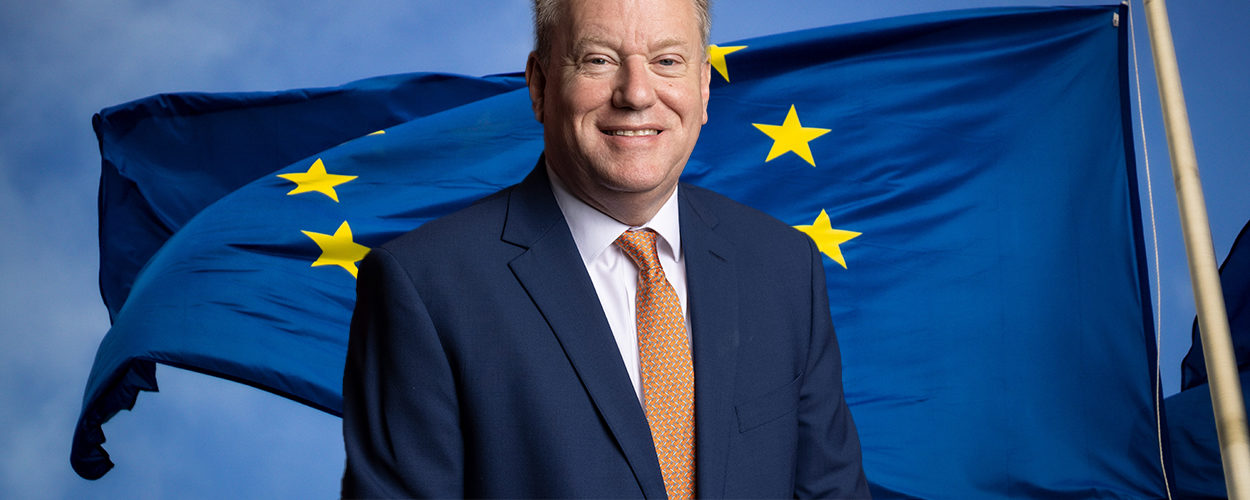This website uses cookies so that we can provide you with the best user experience possible. Cookie information is stored in your browser and performs functions such as recognising you when you return to our website and helping our team to understand which sections of the website you find most interesting and useful.
Business News Legal Live Business
Former Brexit negotiator admits “purist” approach to EU trade deal inflicted excessive paperwork on musicians
By Chris Cooke | Published on Thursday 17 March 2022

The UK’s chief Brexit negotiator David Frost has admitted that he was “too purist” when it came to negotiating with the European Union over the free movement of performers and musicians across Europe, resulting in a bad deal for the British creative industries.
The post-Brexit UK/EU trade deal does not include any provision to allow EU-wide visa, permit and carnet free touring for British performers and musicians. As a result, artists and their crews must now navigate different bureaucracy in each EU member state where they tour, often adding extra paperwork and costs, some of which makes lower and middle level tours unviable.
When it first became apparent that there was no visa free touring provision in the deal, both the UK and the EU blamed the other side, on the basis that both parties had made proposals for how visa free touring might be achieved, but both sides opposed the other’s plan.
With COVID regulations making touring pretty much impossible as that Brexit deal went into effect in early 2021 anyway, there was a window of opportunity to address the issues the trade deal had created for the music and wider creative industries. Politicians in Westminster, including many key Brexiteers, all agreed those issues should be addressed, though – which a few exceptions, for example regarding permits for touring in Spain – little progress has been made.
At one point Prime Minister ‘Boris’ Johnson insisted in Parliament that his government was on the case and that Frost – who was still responsible for EU relations at that stage – was leading the charge to find solutions. Though when Frost finally agreed to talk to Parliament’s culture select committee it turned out that was another nasty nugget of Johnson bullshit.
It wasn’t really his problem, Frost told MPs, and while the post-Brexit reality was annoying for performers and musicians, that was a necessary evil for achieving the bold vision of Brexit that the majority of British people (aka 26.5% of the population) had voted for in 2016.
But, according to The Independent, in a lecture earlier this week Frost – now out of government – admitted that there are, in fact, some big issues with the post-Brexit trade deal that he negotiated when it comes to mobility, and – crucially – that those issues should be addressed.
“We should take another look at mobility issues”, he said during the lecture. “There is a whole set of problems here that is making life difficult on both sides – youth mobility, movement of specialists like musicians and artists”.
Many of Frost’s former colleagues in government have previously argued that it’s impossible to address those issues at an EU level without threatening the very fundamentals of Brexit, instead proposing specific deals be negotiated with individual EU member states.
Frost admitted in his lecture that disputes between the EU and UK over COVID vaccines last year did make it very difficult to take “a more pragmatic position” on mobility issues. But that doesn’t mean addressing said issues at an EU level is impossible in the long-term.
Admitting he was “too purist” whenever it came to freedom of movement while negotiating the post-Brexit trade deal, he added that there is definitely a need to find a way to remove “excessive paperwork and process requirements”, concluding: “We should try to get to it”.
Responding to Frost’s latest comments, Labour MP and culture select committee member Kevin Brennan told The Independent: “Purist dogma has ruined successful British businesses and hit artists income hard – they will rightly be furious with an incompetent government that sacrificed them for no good reason”.
Meanwhile, UK Music boss Jamie Njoku-Goodwin said: “These comments confirm everything the music industry has been warning about for more than a year now, and should be a call to action for ministers. If even the chief negotiator believes we should look at mobility issues again, there is no excuse for government not to act on this”.





